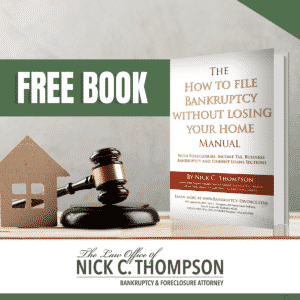Just when you thought it was safe to go back into the water another shark-eating shark shows up. You might think a closing attorney or bank doesn’t have to pay both the seller and the buyer for a building. However, that’s incorrect. In fact, a trustee can undo a perfectly good property purchase. That’s when you must study fraudulent or preferential transfers and fair market value.
Fraudulent or Preferential Transfers • Fair Market Value
This normally doesn’t happen when the buyer pays fair market value for the building. But the defense for fraudulent or preferential transfers of paying fair market value only exists when you are buying a property with your money. To determine this, they often use the dominion test to see if you are using your own money.
Take for example In Mano-Y&M Ltd. v. Field (In re Mortgage Store, Inc.), 773 F.3d 990 (9th Cir. 2014). In this case, Mano sold a shopping plaza to the Mortgage Store for $300,000 and a $1.9 million mortgage. When buying the property, The Mortgage Store was bankrupt but they had not yet filed. Moreover, only the owners of the Mortgage Store knew it.
The agent only went through the process of receiving the purchase money, distributing the proceeds, recording the deed, and executing the closing. However, almost two years later the Trustee and Court held the closing agent to be an initial transferee and therefore liable.
Under 11 USC 550, a bankruptcy trustee avoids fraudulent transfers, and may recover property or its value from the following:
(1) the “initial transferee” or “the entity for whose benefit such transfer was made,” or
(2) an “immediate or mediate transferee of such initial transferee.”
“Subsequent transferees” are those who acquire the property for “fair market value”, in “good faith”, and without “knowledge of the avoidability of the transfer”. Initial transferees are strictly liable and transfers to them can be undone whether it is for fair market value or whether the purchase is made in good faith or not.
⎆ Fair market value and subsequent transferees.
The goal is then to be a subsequent transferee. The Court in this case used the “dominion test to determine if the agent was an initial transferee.” Under this test, the question is whether the recipient has legal title and the ability to use the funds as it sees fit. Also, under this test, even if there is no fraud, the Trustee can reverse the transaction (give the property back) and recover the funds paid at closing.
In addition, the Trustee earns a sliding scale starting at 25% of what is now in distribution to creditors. This commission plus expenses is not a bad payday (enough to pay off the Mercedes). Also, be aware that you are not talking him into looking the other way—widow and orphans or not.
In this case, the buyer had the ability to use the funds as he saw fit (had dominion) and his closing agent was the initial transferee (who could not use the funds as he saw fit). The Chapter 7 trustee in this case recognized the agent was using funds from a third party so the defense of paying fair market value for the property could be stripped away.
⎆ The defense of paying fair market value against a preferential or fraudulent transfer.
The defense of paying fair market value against a preferential or fraudulent transfer only exists if the buyer has the ability to use the funds in his possession as he sees fit. See Bonded Financial, 838 F.2d 890, 894 (7th Cir. 1988) (a subsequent transferee has dominion if he is “free to invest the whole in lottery tickets or uranium stocks.”)
[Bonded Financial Services, Inc. v. European American Bank, 838 F.2d 890, 892 (7th Cir. 1988)] (citing Douglas G. Baird & Thomas H. Jackson, Fraudulent Conveyance Law and Its Proper Domain, 38 Vand. L. Rev. 829 (1985); Robert Charles Clark, The Duties of the Corporate Debtor to Its Creditors, 90 Harv. L. Rev. 505, 554-60 (1977)); see also Tese-Miller v. Brune (In re Red Dot Scenic, Inc.), 293 B.R. 116, 121 (S.D.N.Y. 2003) (noting that strict liability for initial transferees “lowers the cost of credit”). Id. at 997.
Resources for Bankruptcy
Louisville Kentucky Bankruptcy Forms
 Other Related Information
Other Related Information
Foreclosure | When and How to Walk Away
How to Keep Your Property When Filing Bankruptcy in Kentucky
Fraudulent Concealment and Transfers in Bankruptcy
If you are thinking about filing bankruptcy, don’t delay because timing is crucial. I am here to help you. So, contact my office right away to start the conversation. Nick C. Thompson, Bankruptcy Lawyer: 502-625-0905



